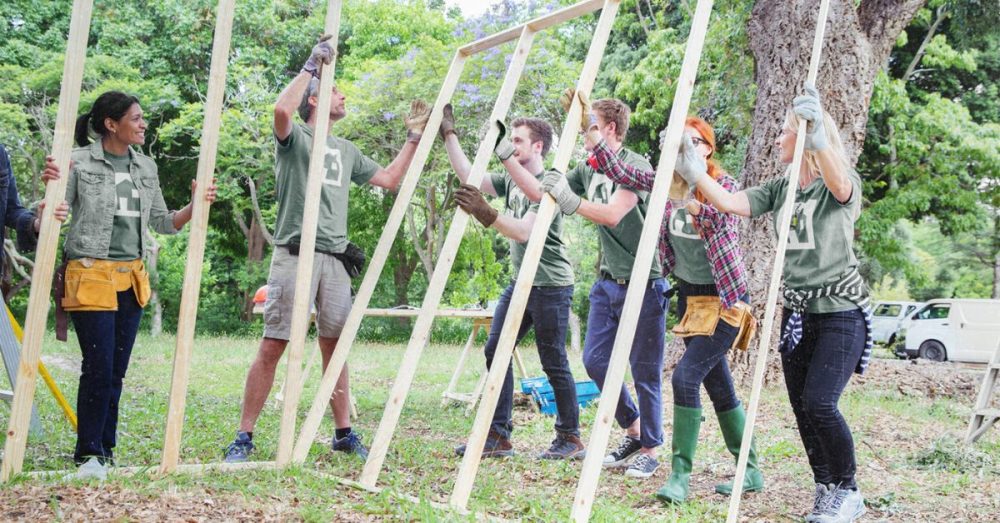A local nonprofit has taken on the challenge of ending homelessness in Denton by fostering a sense of community.
The 1877 Journey is the non-profit organization spearheading the development of Community Forever Village, a planned tiny home community on 70 acres of donated land on the west side of Denton.
The nonprofit’s name is a nod to the family history of Evelyn Barthold, whose German immigrant ancestors purchased the 70-acre plot of farmland in 1877. She grew up there on a farm along what is known as Barthold Road, but now she has donated the land for a higher purpose.
“In her words, ‘It’s a beautiful piece of land,’ and she wanted to ‘do something beautiful’ with it,” explained Barthold’s friend and fellow board member of The 1877 Journey, Pete Maugans, per WFAA.
That “something beautiful” turned out to be a project to “provide permanent, alternative, supportive housing in a manner that fosters community for our chronically homeless neighbors,” according to the Community Village Forever website. It claims the venture is “quite different from anything you have ever seen or experienced in homelessness solutions brought forward by other organizations.”
The organization’s mission is to provide a “multidimensional approach to permanent housing for our chronically homeless neighbors that cultivates community, empowering them to discover a life of belonging and dignity.”
The nonprofit’s founders believe that “the catastrophic destruction of the family unit is the primary underlying factor of the homelessness crisis in America. … While housing is critical, much more is needed to provide a loving environment. Housing with community promotes a path towards healing.”
To that end, each tiny home in the Community Forever Village will be part of a pod of 25 units. Each single-story unit will have a bedroom, sink, and toilet, and each pod will have a communal kitchen and living area, laundry area, and a shower building with multiple private showers. The idea of the shared spaces is to promote socializing and community-building. Each pod will have a live-in case manager to assist the residents.
The project’s first phase will include 75-100 tiny homes, but up to 350 could be built on the property as needed.
The concept for the project is based on Community First! Village, a 51-acre micro-housing development in Austin, Texas.
The community will also have other components open to non-residents, such as a farm museum, an event hall, a community market, a small restaurant, a coffee shop, and workshop facilities for activities such as automotive repair and woodworking. These business entities will provide opportunities for residents to earn a living and participate in the community.
The village will also offer “essential partner services necessary to serve our neighbors well,” but the website did not elaborate on what types of services it was referring to.
The project is entirely funded by donations, and thus far, no local, state, or federal taxpayer dollars have been contributed to the effort.
“[Homelessness] is a communitywide problem that will require communitywide engagement,” Maugans said, per the Denton Record-Chronicle. “I hope to motivate the business community to get involved.”
Meanwhile, in Dallas, polling conducted by The Dallas Express indicates that around 75% of residents think homelessness, vagrancy, and aggressive panhandling are “major” problems. Respondents also appeared to generally support the homeless services model utilized by Haven for Hope in San Antonio.
As previously reported by The Dallas Express, Haven for Hope operates a homeless services campus that provides resources like drug counseling, job training, and medical treatment on the same premises where it maintains transitional housing. An economic impact report credited the “one-stop-shop” model with reducing unsheltered homelessness in San Antonio’s downtown area by 77% since Haven for Hope opened.
Some local stakeholders want to bring the model to Dallas. However, it is unclear whether City officials will support such a measure.


